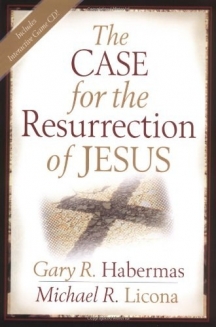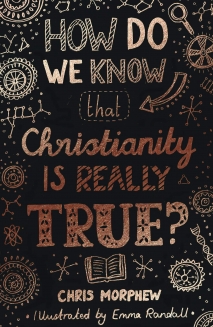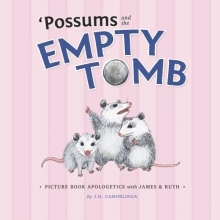Learn more about the journey that led to us equipping kids to carefully evaluate every idea they encounter.
Meet members of our team who have contributed to curriculum development.
Hear from real users of the Foundation Curriculum.
Learn what we believe about God, Jesus, Scripture, and more.
March 2023 Book Club Recommendations
Our goal in the Foundation Worldview Book Club is to provide resources for you to have meaningful, literature-based worldview discussions with the children God has placed in your care. We work hard to choose books with insightful, truth-based themes. However, we know that our subscribers will have different convictions about the content they allow in their homes, churches, and classrooms. We encourage you to read the recommended books ahead of time, to ensure that the content fits within the framework you have already established in your ministry context. Please also note that by recommending a certain book, Foundation Worldview is not endorsing every work published by a particular author. Some of the links below are affiliate links. This means that, at zero cost to you, Foundation Worldview will earn an affiliate commission if you click through the link and finalize a purchase.
Book for Adults

The Case for the Resurrection of Jesus
Gary Habermas and Michael Licona
Christianity rises or falls on the resurrection of Jesus. In this book, Gary Habermas and Mike Licona explore the evidence surrounding the empty tomb and how it points to the resurrection as the most plausible explanation.
Book for Children Ages 8-12

How Do We Know That Christianity Is Really True?
Chris Morphew
The idea that Christians worship a man who claimed to be God and supposedly rose from the grave can be difficult for middle-grade kids to understand. How Do We Know Christianity Is Really True? investigates difficult questions and answers, highlighting evidence supporting the truth claims of the Christian worldview.
Question 1
Have you ever before thought through any of the questions this book explored?
Discussion Guide - Allow your child time to share his or her thoughts. This will give you insight into questions they may have had that they never vocalized.
Question 2
What information in this book surprised you?
Discussion Guide - If your child does not have an answer, bring up any concepts that stood out to you.
Question 3
What are some of the pieces of evidence that you think point to Christianity being true? Are there any pieces of evidence you are not convinced of?
Discussion Guide - Allow your child to share his or her thoughts. Listen with the goal of truly understanding where they are at, not with the goal of changing their mind if they are skeptical. If they are convinced Christianity is true, take this opportunity to jot down a list of the evidence you both find most convincing. If your child is skeptical, pray that God would soften your child’s heart, help him or her think clearly, and give you wisdom on how to wisely continue this conversation.
Bonus Question
If your child has gone through Foundation Careful Thinking Curriculum, ask, “What are other sources we could consult to continue investigating the evidence?”
Discussion Guide - Discuss the principles for evaluating sources that were taught in Unit 4.
Book for Children Ages 4-7

‘Possums and the Empty Tomb
J.D. Camorlinga
How do we really know Jesus rose from the grave? That is a question that even our little ones should be able to answer on a basic level. And that is exactly what ‘Possums and the Empty Tomb equips kids to do.
Question 1
Is it possible that Jesus’ disciples just stole the body and told everyone that Jesus rose?
Discussion Guide - Discuss how many of the disciples were killed for following Jesus. While many people die for beliefs that are not true, it is vey unlikely that people will die for a belief they know is a lie.
Question 2
Maybe did the disciples just get confused and check the wrong tomb?
Discussion Guide - Discuss how the tomb belonged to a well-known, wealthy man. If the disciples had just checked the wrong tomb, the Roman and Jewish leaders could have easily proved that Jesus’ body was in the right tomb.
Question 3
Could Jesus have just been playing dead?
Discussion Guide - Have your child try to lift an object that is too heavy for him or her to carry. (Be sure there is no danger of your child becoming injured by attempting to lift the object.) Ask your child if he or she could lift this object with two broken arms. Then explain that Jesus was injured very, very badly. There is no way He could have moved a several thousand pound stone in His injured condition and then convinced people He was resurrected.
Bonus Question
If your child has gone through Foundation Early Childhood Worldview Curriculum, ask your child, “What does it mean if Jesus rising from the grave is a truth?”
Discussion Guide - Have your child explain what truth is (truth is what is real). Then discuss how our feelings about Jesus cannot change whether or not He rose from the grave.
Join the Foundation Worldview Book Club
Each month we provide recommended reading with discussion questions for you and your child. Don't miss next month's recommendations from Foundation Worldview!
Related Posts and insights

How Do We Explain the Doctrine of Election to Kids?
How do you explain the doctrine of election to kids without causing fear? Discover how Scripture's promises bring peace and assurance to children's hearts.

Helping Your Child Understand That Love Is a Choice, Not Just a Feeling
Is love just a feeling? Learn how to teach your child that biblical love is a choice using 1 Corinthians 13, with practical weekly tips for every age group.

How to Help Your Child Through Hard Circumstances
Learn five biblical steps to walk your child through suffering and hard circumstances—from demonstrating compassion to helping them look beyond themselves.
